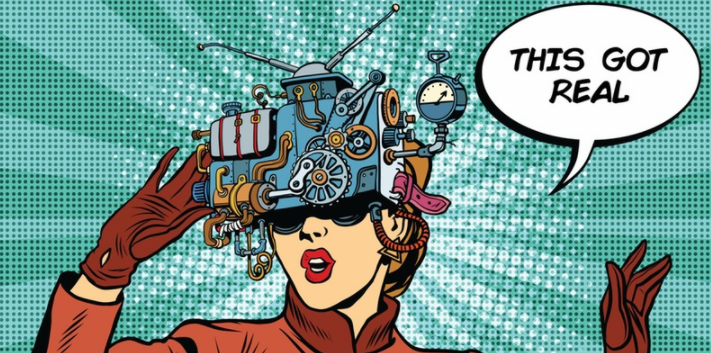
Avatars that can read your emotions and droids that can be controlled by a person’s mind. What was once the stuff of science fiction is fast becoming a reality as technology moves at an exponential pace of development.
Blackeye VR CEO and NZ VR/AR Association executive board member Jessica Manins says technologies like virtual reality, augmented reality, AI and the IoT are here and readily accessible for people to use – so what better place to test it out than at Techweek 2017’s Future Realities conference.
She says that while the conference is called ‘Future Realities’, one of the points the conference aims to make is that the future is already here.
“The potential scaling of this tech is massive, so we’ll look at: how does it apply to different sectors and how will it change the way we live, work and play?” she says.
For those who aren’t as familiar with these sorts of technologies, Manins says it’s important that people start getting to know them considering they’re the “fourth platform wave” of tech.
“First it was PC, internet and mobile, next it’s augmented reality,” she says.
“This is about preparing yourself and understanding how you can use it. The rate of development [of this tech] is much faster than predicted, so with job displacement, now is the time to prepare for machine learning and AI.
“How do we get our next generation, our children and our educators to be prepared for this? It’s important we really consider what this tech can do and how we can take advantage to make it a positive thing.”
Apart from the more daunting implications of this futuristic technology, the tech on display for anyone who hasn’t tried VR before will be mindblowing, Nanin says.
There’ll be demonstrations of it being used in the real world, such as with medical training, Wellington’s smart city visualisation and even a droid being controlled by someone’s mind.
“That might’ve seemed far-fetched in the past – like something out of a science fiction movie – but that’s actually possible right now,” Manins says.
For businesses that want to become more immersed in this space, Manins says she wants them to get inspired and see that transformative technology can be used in incredibly positive ways to scale up a business.
She says with seven workshops running over the conference week and then a weekend hackathon, there’s lot of practical tasks people can engage with.
“People will actually produce something and have something tangible they can take away,” she says.
“One of my visions for this is its not just a talkfest, it’s something that people can hands-on experience.”
Not just for the nerds
Another important aspect to note with Future Realities is it isn’t just created with the aficionados of futuristic tech in mind – it’s been crafted for the novices, too.
“We claim this is going to be the least boring tech event to attend this year because its not just targeting the tech sector, we expect the storytellers and the creatives will want to attend this, too,” Manins says.
“There’ll be keynotes and workshops about how you can use new tech to scale your stories, some from a training POV, others from an entertainment POV, so there’s a real variety.”
Manins says aside from the tech industries, other sectors such as tourism, engineering, architecture and entertainment in New Zealand could explore the possibilities of this new tech a lot more.
“What people are finding is augmented reality is a new way of telling stories, so we can show our culture and our history through augmented reality and deliver some really creative experiences for people,” she says.
“In terms of tourism, there’s a huge opportunity here for New Zealand to embrace for international and domestic tourism, we’ll see a lot of operators trying to explore how they can add that into their offer.”
There are already some early adopters of this tech, such as Queenstown-based Ziptrek Ecotours, which has been using VR technology at tourism events to show potential buyers the experience of ziplining through the forest.
Exploring future tech in New Zealand
The AI, AR/VR and IoT business sector are budding in New Zealand, but there’s still the opportunity for more growth.
In particular, Manins says Wellington is a natural fit for this industry.
Project R, a centre for virtual and mixed reality is about to open next month, while companies like Wellington-based 8i and Xero are innovating in this space,
“I know that for example Xero have an AI department that they’re growing, and I think some of those bigger tech companies are specifically designing AI teams to develop this new technology,” Manins says.
Outside of the tech industry, she says the entertainment and gaming industry in Wellington is a natural fit for this kind of technology, considering it’s the storytelling capital of the world.
“We have that talent here already so it’s about transferring that into these new mediums.”
The dates for the Future Realities Wellington and Auckland conferences are as follows:
Wellington Conference: 10 May
Wellington Hackathon: 10 May
Auckland Conference: 11-12 May
Auckland Hackathon: 13-14 May.
Manins will be closing both the Auckland and Wellington events, which are close to being sold out. To find out more, head to Techweek’s website.




